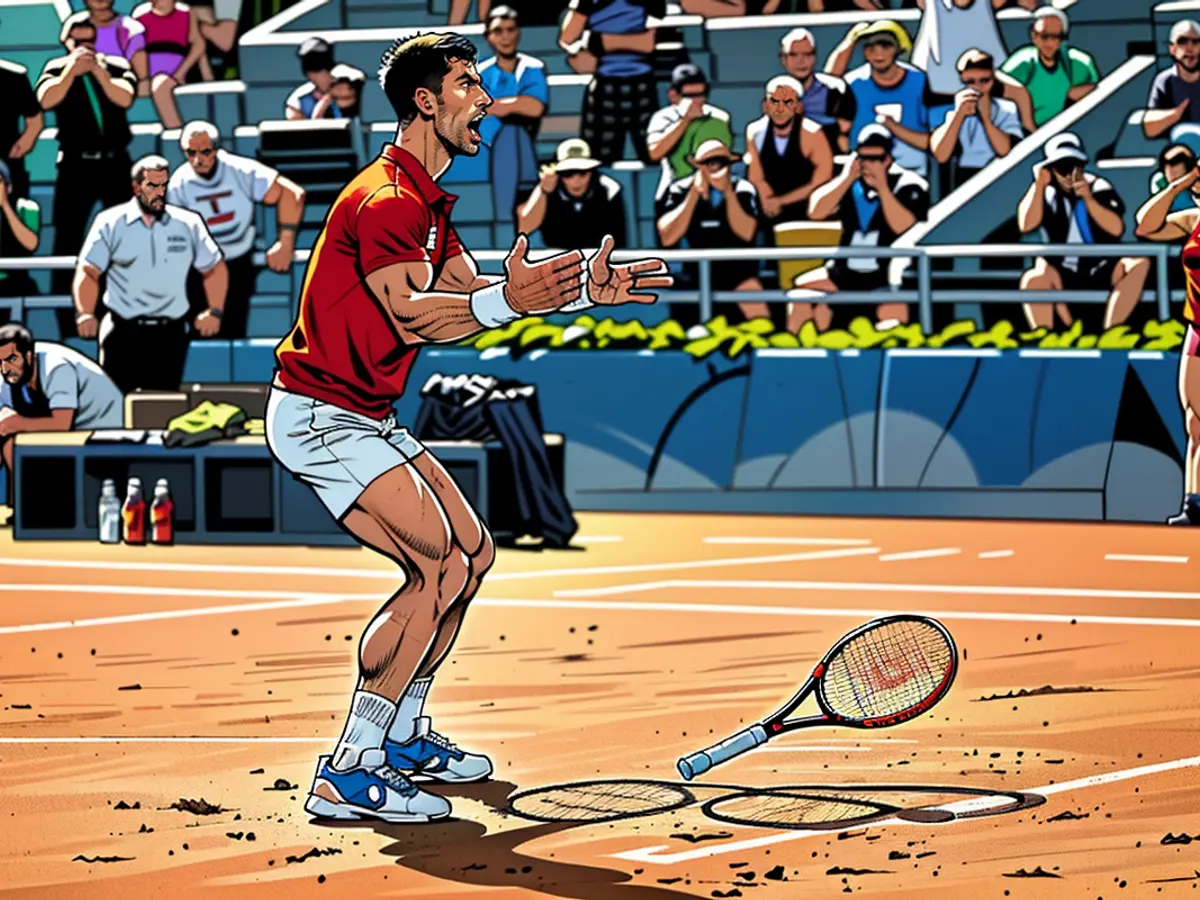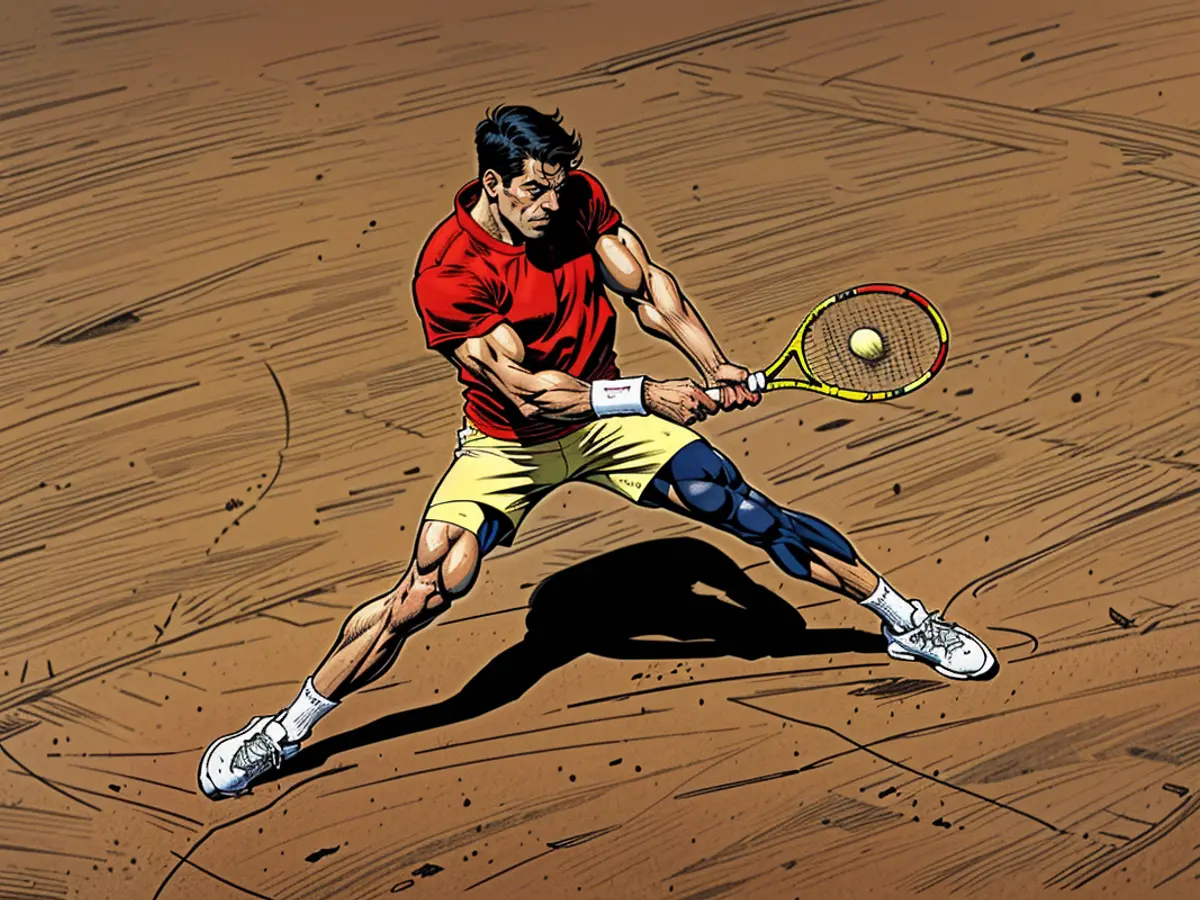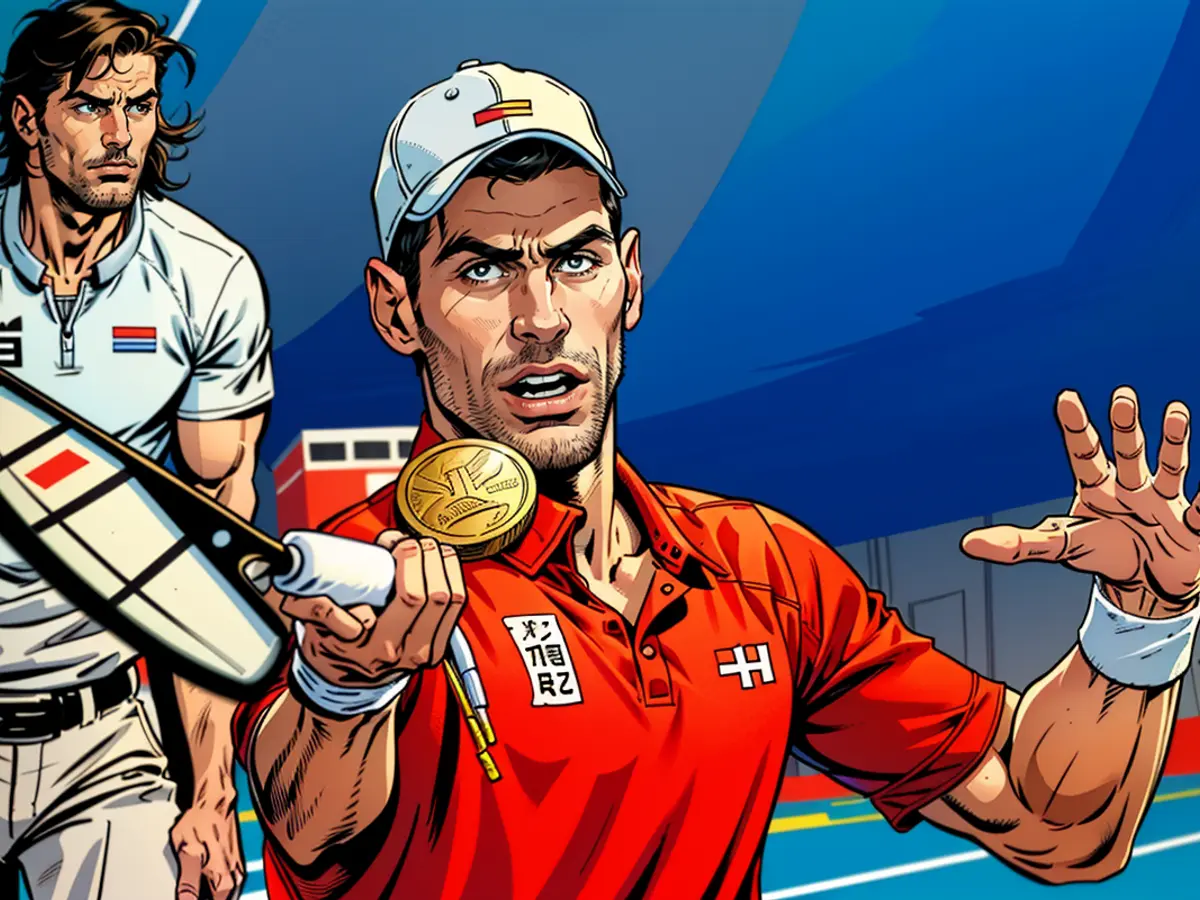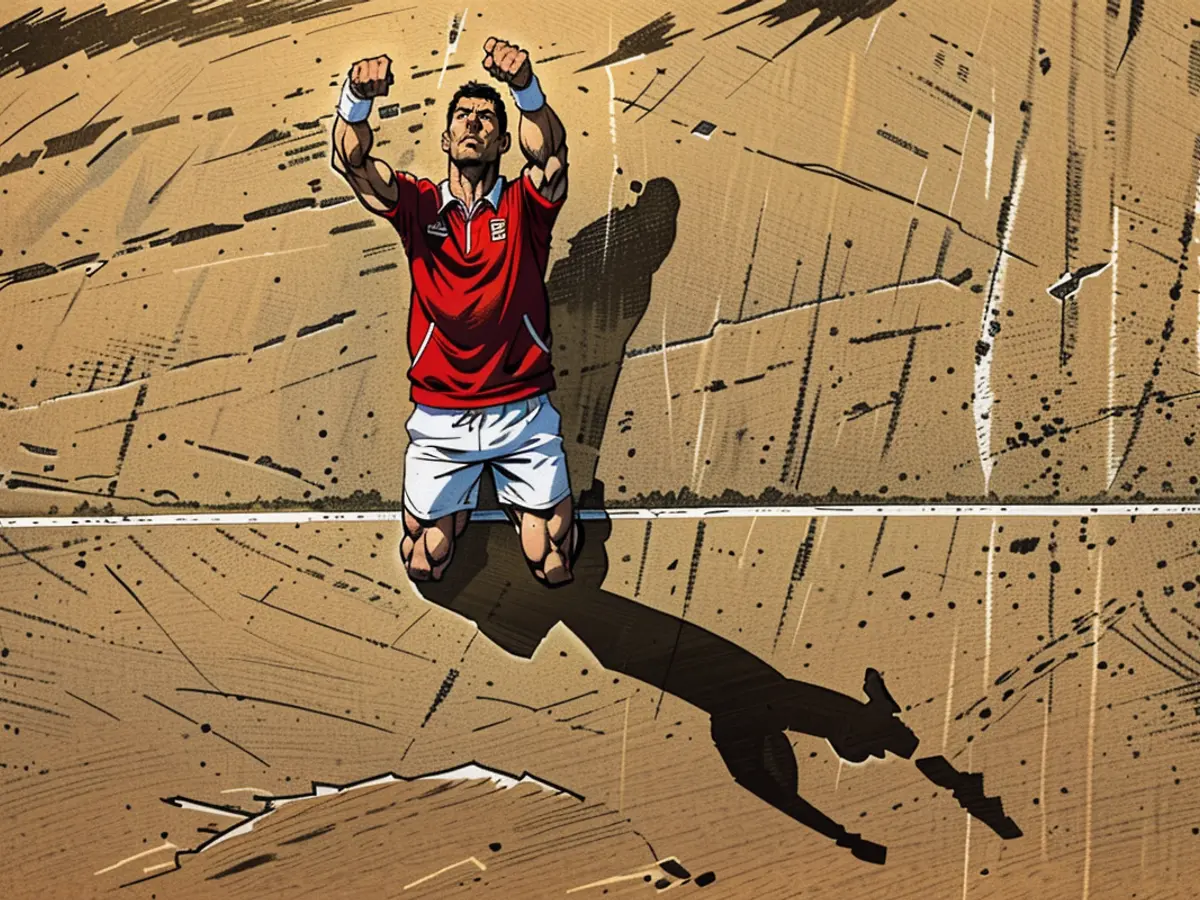Novak Djokovic says that Olympic gold ‘supersedes everything’ as he defeats Carlos Alcaraz in thrilling final
Djokovic outdueled Spain’s Carlos Alcaraz in a brilliant, exhausting men’s singles final at Roland Garros on Sunday, triumphing 7-6(3) 7-6(2) in two hours and 50 minutes.
With the victory, Djokovic became the fifth player to own what has been dubbed the career golden slam by winning all four majors and an Olympic singles title. That exclusive group also features Rafael Nadal, Andre Agassi, Steffi Graf and Serena Williams, who was in the stands to witness this pulsating contest.
How much this triumph meant to Djokovic was immediately evident. Upon winning match point, he roared with delight, dropped to his knees, then tearfully embraced his family and coaching team.
A Serbian flag was soon brought out, and the 37-year-old – the oldest man to win an Olympics singles gold medal – still seemed shaken with joy when he returned to his courtside chair. This is the first title that Djokovic has won all year, but arguably the one he wanted the most.
“I couldn’t be prouder and happier,” said Djokovic, who won a bronze medal at the 2008 Beijing Olympics.
“Playing for Serbia has always been my utmost, real pleasure, my priority ... I’m just so proud to be a part of an elite number of athletes that managed to win gold for their countries in their respective sports.”

Olympic tennis competitions can be a strange thing, arriving at awkward times in the calendar and often missing some of the sport’s top players. This, however, was an exception, a thrilling sequel to Alcaraz’s straight-sets victory in the Wimbledon final three weeks ago.
At the Paris Olympics, Djokovic has returned to the court on which he sustained a knee injury while playing at the French Open in June. That seems a lifetime ago now, and one meniscus surgery and one grand slam final later, he has now filled a notable gap in his remarkable trophy cabinet.
Still playing with a brace on his right knee, Djokovic started the match promisingly, creating a break point on Alcaraz’s first service game.
The 21-year-old shut out the opening, which would become a common theme through the early part of the match. Djokovic had five break points in the first set and Alcaraz eight, yet neither man could edge in front.
Or looking at it another way, both seemed to raise their standard when the pressure increased. That was best demonstrated at 2-1 in the first set, with Alcaraz 0-40 down on his own serve. After a quick change of rackets, he reeled off the next three points before wrapping up the game a few points later with an exquisite drop volley.
The roles reversed several games later. With the set locked at 4-4, Alcaraz’s booming forehand heaped the pressure on Djokovic’s serve, and the break points came thick and fast – five in that game alone. But the world No. 2 stood firm, roaring to the crowd when a volley winner denied Alcaraz the chance to get ahead.

It was fitting and probably fair that this absorbing set would be decided by a tie-break, and with the scores locked at 3-3, it was Alcaraz who cracked first. Back-to-back errors handed Djokovic three set points before another cute forehand volley completed the marathon first set in an hour and 33 minutes.
Unsurprisingly, little changed in the second set, only that break points became fewer and farther between.
As the match wore on, the standard remained unrelentingly high. At 4-4, Djokovic came from 40-0 down to deuce on Alcaraz serve, prompting chants of “Nolé! Nolé!” from the stands. But Alcaraz had a response, winning a marathon point by sliding a shot past Djokovic at the net, then raising a finger to his ear in celebration.
An inevitable tie-break followed soon after and, once again, the 24-time grand slam champion’s experience and mettle came to the fore.
A stunning cross-court forehand, bringing to an end one of the longest rallies of the match, had the crowd on their feet, and Djokovic didn’t lose a point from there. Another forehand winner completed the victory, which was sealed with a huge roar of delight.
Thereafter, the emotions flowed freely as Djokovic kissed and hugged his wife and children in the stands. This was only Serbia’s second medal of the Games, and the country’s sporting talisman had achieved it without dropping a set in the competition.
“I was so blessed to win everything pretty much there is to win in my sport, but this is something different,” said Djokovic. “This supersedes everything that I’ve ever felt on the tennis court after winning big trophies. It’s just incredible joy.”

At 21, Alcaraz had been aiming to become the youngest man to win an Olympic singles gold medal. Despite falling short, he played a wonderful role in this spectacle, dazzling the crowd with 25 forehand winners.
His unforced error count may have cost him – 33 to Djokovic’s 25 – as well as an inferiority to his opponent in the two tie-breaks. But heading into the US swing, the world No. 3 can nonetheless reflect on a stellar two-month period: a first French Open title, a second Wimbledon title and now an Olympic silver medal.
“I’m really happy about my performance today,” Alcaraz told reporters. “I’m a little bit disappointed about not playing my best tennis in some situations, in difficult situations. Tie-breaks, for example, he increased his level at the top and I couldn’t do it, so probably a bit sad thinking about those moments.”
It just happened to be one of those days that Alcaraz found himself up against an opponent who was inspired and determined like never before.
“In front of me, I had a really angry Novak,” he added, “An impressive player today. His level was really, really high.”
Djokovic's victory in the tennis final marked another significant achievement in his illustrious career, adding another trophy to his collection in his favorite sport. During the Olympic tennis competitions, top players often miss out due to their schedules, but thankfully, Alcaraz and Djokovic were able to showcase their skills, with the latter outperforming the young Spanish player in an intense match.








